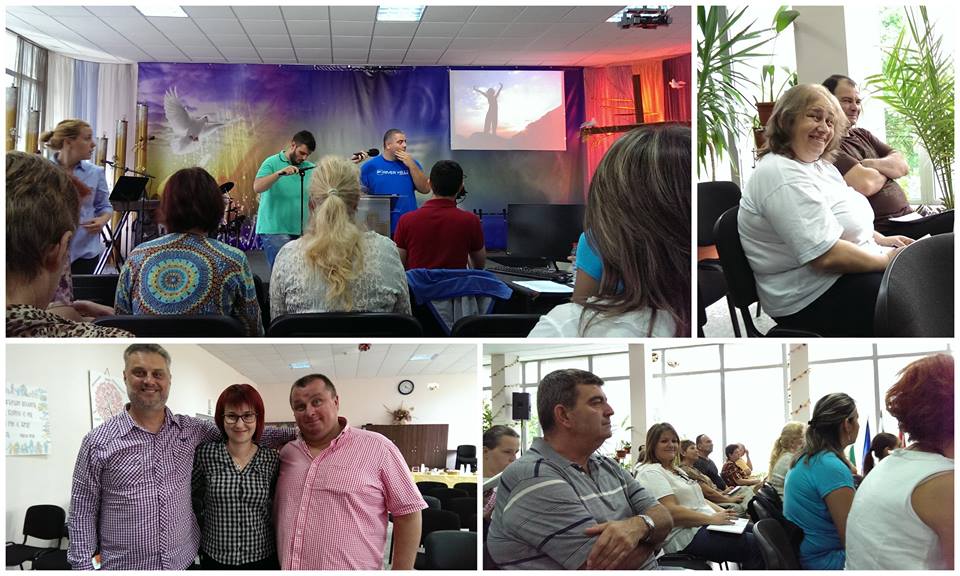One size fits all leadership style? No, thanks…
The best leaders are fluid and flexible in their approach. They understand the power of, and necessity for contextual leadership. “My way or the highway” leadership styles don’t play well in today’s world, will result in a fractured culture, and ultimately a non-productive organization. Only those leaders who can quickly recognize and adapt their methods to the situation at hand will be successful over the long haul. Think open-source not proprietary, surrender not control, and collaborate not dictate.
Show me some chutzpa: Leadership absent courage is a farce!
Leadership absent courage is a farce. I’m not referring to arrogance or bravado, but real courage. It takes courage to break from the norm, challenge the status quo, seek new opportunities, cut your losses, make the tough decision, listen rather than speak, admit your faults, forgive the faults of others, not allow failure to dampen your spirit, stand for those not capable of standing for themselves, and to remain true to your core values. You can do none of these things without courage. Courage is having the strength of conviction to do the right thing when it would just be easier to do things right. The moral of this story is leaders need to be honest, have a demonstrated track record of success, be excellent communicators, place an emphasis on serving those they lead, be fluid in approach, have laser focus, and a bias toward action. If these traits are not possessed by your current leadership team, or your emerging leaders, you will be in for a rocky road ahead…
InJOY Church of God Leadership Study 20 Years Later
Source: COG Leadership Development: The Consultant’s View
Dated: 7/12/2002
For the past two years, the Church of God has benefited from an association with INJOY denominational consultants Dr. Conrad Lowe and Dr. Ron McManus. Recently they presented a comprehensive report with the Church of God Executive Council, which is shared here with COG News readers. John Maxwell Denominational Partnerships wishes to thank God and the leaders of the Church of God for the privilege of working closely together in the leadership development initiative. This endeavor has been a highlight of our ministry.
During Phase I, we witnessed this great vision cast across the entire Church of God in North America. Visionary leadership was modeled by the Executive Committee and the Executive Council. State overseers have invested in extensive training. Approximately 2,000 pastors and lay leaders have been trained in various ministry skills. Mentoring groups have begun in most states. Many growing churches have begun to grow, and many declining churches have accelerated, many plateaud churches have begun to grow, and many declining churches have stabilized. Finances, conversions and membership have increased. Church health and “excellence” have also improved for many churches.
The future goal is that additional pastors and churches will be added as we move to more intensive leadership training. In addition, the leadership development initiative will add leadership “coaching” to the mentoring strategy.
One of our tasks as consultants is to bring awareness of potential barriers to the vision of the Church of God. At this juncture in the process, we suggest there are five areas that should be addressed by the Church of God.
Church of God DNA
From our observation, the Church of God has at least three prominent formative influences—holiness, Pentecostal experience and a predominant rural culture.
· The holiness lifestyle defines your character.
· The Pentecostal experience empowers you through the Holy Spirit.
· The rural culture gives you your mental model of ministry.
The dangers we envision are as follows: (1) the importance of holiness may not be passed to the next generation; (2) the Pentecostal experience may lead you to focus on the gifts and neglect the disciplines of ministry; (3) a rural model of ministry is not readily transferable to other cultures, including ethnically diverse, suburban and urban cultures.
RECOMMENDATIONS
1. A plan of education in your heritage holiness must heavily influence your next generation. It may take place in institutions, distance learning, books, tapes, seminars, and so forth. At this point, we observe many Church of God pastors receiving their theology from external sources rather than their denomination.
2. Focus on you Pentecostal experience as your distinctive relationship with God, but add the disciplines of ministry to your gifts. For example, the training offered by the International Executive Committee during the spring and fall events focused primarily on ministry disciplines such as evangelism, assimilation and change management, along with others. Eventually, Church of God leaders will excel in the exercise of the gifts and the disciplines of ministry.
3. Learn how to plan and grow churches in diverse cultures.
Leadership Rotation
It appears that you believe you can “lead by taking turns.” The theory is based on the belief that every leader who is voted into offices next is as productive and skilled as the one being replaced. This organizational model works only if all leaders are equally capable. That theory is never true. This system always produces a roller-coaster effect of good and bad leadership. There is never time for the accomplishment of a vision; instead, each new leader is determined to leave his personal mark. The new leaders then feel free to change everything every time there is an election. If any group is lead by a great leader, they should do everything possible to keep the same leadership in place for sustained success. If not, the quality of leadership in the Church of God will always be “peaks and valleys” depending on whose “turn it is this year.”
Imagine any local Church of God. If they get a great leader and the church is prospering, they would do anything to keep that leader because they know one thing from experience—we have fine leader, but if he leaves, the next one may not be as good. We encourage the Church of God to rethink this underlying assumption about how your denomination is led. Major ministries are led by (1) great leaders and (2) those leaders stay long enough to build something that lasts. For great leaders, the longer they lead, the better the organization will become.
RECOMMENDATION
Focus on productivity instead of “taking turns leading.” As John Maxwell says, “Everything rises and falls on leadership.” The local Church of God churches will “rise and fall” on the quality of the leadership in your pulpits, your state and regional offices, and the international offices. The future of your movement depends on your ability to attract and keep our most gifted and productive leaders in your positions of influence.
Leadership Skills
The present system of choosing leadership in the Church of God encourages “political skills” instead of “leadership skill.” The regular votes for leaders (state, national and international levels) express the will of the minority. This is true because the majority do not vote in most political systems.
RECOMMENDATION
Hold the elected leaders accountable for the improved ministry of the churches they serve instead of “popularity votes.” Choose the best leaders among you. Then give them the resources to do the job. Support them with prayer and cooperation. Finally, hold each leader accountable for the results of their leadership and measure how well the churches are doing under their leadership.
We encourage the Church of God to continue its dependence upon the leadership of the Holy Spirit in making decisions which improve the church. As consultants, we find few people who are purely political, but we raise a major warning that the present system encourages “patronage.”
Structure
The Church of God is historically structured as a “hierarchy.” It can be visualized as a pyramid with pastors and churches at the bottom, state overseers in the middle, and international executive leaders at the top. As one moves upward in the pyramid, renown, finances and power increase. Under the leadership of Dr. Lamar Vest, the pyramid is being inverted. The principle is Biblical “servant leadership.” The international executive leaders serve as a resource for the state overseers, while the state overseers serve as a resource for the local pastors and churches.
We encourage the Church of God to “stay the course” moving in the direction of servant leadership. Jesus said, “He who would be greatest among you, let him become the least among you.” In the body of Christ, we must focus attention and resources on those who labor in the fields of the Lord’s vineyard.
RECOMMENDATIONS
1. Focus on the right group. Every successful structure must align the members to achieve the ultimate goal. The goal of the Church of God is to reach the lost and to train fully devoted followers of Jesus Christ. In most organizations, the structure evolves to benefit the people who make the policies. Improvement occurs when they focus on the right people, the lost and those being involved in ministry.
2. Make decisions at the level closest to the work. The correct consulting term for this is empowerment. The Church of God must organize the denomination to develop the potential in every church. Ephesians 4 clearly describes the congregation of the church as “ministers,” not “spectators.” The Bible then says those lay ministers should choose laypeople to lead their ministry. The task of the pastor and staff is to equip the people in the congregation to build a great ministry. Structure the future to develop strong lay ministries with everyone else serving as a resource for that local ministry.
3. Make the structure flexible enough to meet current challenges. The foundation of the Church of God is its holiness, Pentecostal experience and Biblical authority. They are the bedrock principles that should remain the same. Structure, however, is temporary and changes as the organization grows and faces new challenges. A denomination plateaus or declines when it treats structure as if it were a foundational principle. You cannot confuse structures with foundational principles. You improve the Church of God when the structures serve the people instead of the people being saddled with an outdated structure.
4. Form Follows Function in Structure. The Church of God must find what God is blessing and then structure itself to join Him. Most denominations begin to decline and decay when they retain their present forms even if they can no longer be successful within those forms. It is time to simplify structure, increase flexibility to encourage innovation, and form your structures to fit your functions.
State/Regional Overseer Productivity
After consulting with the Church of God for almost two years, it is our conclusion that the key to transformation for the future rests primarily in the leadership of the state/regional overseers. They are the denomination’s primary influence on the field of ministry. If the state/regional overseer provides resources; models visionary leadership; and implements the strategies of “mentoring, coaching, consulting, modeling and teaching churches,” that state or region will experience health and growth.
RECOMMENDATIONS
1. Choose only your best leaders in the Church of God as state/regional overseers. They should have sterling character, be holy in their reputation, and have a “track record” of successful leadership; and train them to move from “doing” to “coaching”
2. Evaluate state/regional overseers solely on their ability to move their churches to new levels of quality and quantity.
3. Increase the training for state/regional overseers with one goal: our most productive leaders are overseers.
4. Leave them in place long enough to make a major, positive difference in their state or region. Instead of inheriting a stronger state or region, require the state/regional overseer to build a better state or region.
Leadership Trust
It appears that some Church of God policies have been established as a reaction to leadership failures in the past. Large organizations are notoriously slow to personally address misbehavior. When they do, they often make a general policy that punishes everyone rather than addressing the specific leader involved. The result is “leadership suspicion.” Those within the organization begin to mistrust all leaders and make broad defensive policies. The result is tragic—leadership for the organization is diminished.
RECOMMENDATION
Elect and appoint leaders who meet Biblical standards and who are recognized as people of Christian integrity. Then take the risk to trust and honor them as Scripture requires.
CONCLUSION
We believe the Church of God must address these issues in order to move boldly into the leadership role God has offered you. We do not offer detailed solutions at this point. It is simply our duty to help you recognize some of the issues that will determine the future.
We believe that you must minister as if your dreams are bigger than your memories. Your past has been glorious, but it is no place to live now. Your leaders are being endowed with vision fro God for your denomination, every state or region, and every local church. We encourage you to grow into those visions and resist being defined by the past.
Most important, we believe the church is poised for an unprecedented time of spiritual harvest. The great news is the issues you must address are all issues of growth, not of decline. The difficult news is, you must give serious consideration to some strategies changes. We believe every denomination in America needs to see one leadership group experience miraculous reformation. The rest will gladly follow. We are praying that you—the Church of God—are the group willing to learn enough, work enough, receive enough and pray enough to respond to God’s great promise—that your ministry will multiply “like the sands of the sea and the stars of the sky.”
In leadership, lack of focus shows lack of priority
Leadership is less about balance and more about priority. The best leaders are ruthless in their pursuit of focus. Those leaders who lack the focus and attention to detail needed to apply leverage and resources in an aggressive and committed fashion will perish. Leaders who are not intentional and are not focused, will fail themselves and their team. Leaders who lack discipline will model the wrong behaviors and will inevitably spread themselves too thin. Organizations are at the greatest risk when leaders lose their focus. Intentions must be aligned with results for leaders to be effective.
Cup & Cross Ministries Offers Ministry Leadership Table
March 25, 2021 by Cup&Cross
Filed under Featured, Missions, News, Publication
Parts of Leadership Table will be available on Gumbo Podcast. For more information visit www.CupandCross.com
Reformation Leadership Summit 2015
Missions for the Third Millennium (2009-2010)
This is a re-post of popular articles on Missiology from 2009-2010:
M3: Missions for the Third Millennium – A Public Position (2010)
8 Simple Rules for Doing Missions in the Spirit (2009)
Church of God Eastern Europe Missions: Leadership, Economics and Culture (2009)
Maxwell Leadership Bible
The Maxwell Leadership Bible has drawn lots of attention especially with the publication of John Maxwell’s new bestseller “Sometimes you win, sometimes you learn,” which deconstructs the winning model of church leadership on a totally different level. We’ve used his study Bible through the years especially in cases of young ministers’ training and mentorship.
Instead of a page by page annotation, the Maxwell Bible setup contains inline articles and discussions on various leadership issues within the text. Over 100 biographical profiles of Biblical leaders and short articles are combined with the philosophy behind two other bestsellers on leadership by the author: “The 21 Irrefutable Laws of Leadership” and “The 21 Indispensible Qualities of a Leader”
One of our initial comparison passages (Numbers ch.6 and Jeremiah ch.18) is commented, although Numb. 6 does have an article on the Nazarite vow within the Law of Sacrifice (qt. “Give up to go up”). Jeremiah 18, however, contains a great note on “teachability.” The annotation of v. 18 is simple, but strong: “To keep leading, keep learning!”
The Maxwell Bible is not doctrinally organized per se. Therefore, there’s not much on eschatology and particularly Rapture and Tribulation. Nevertheless, the lessons from the 7 Churches of Revelation are abundantly annotated and worthy to be read privately or taught in a classroom setting, but most of all taken literary and applied to today’s ecclesial reality.
This work is also not Pentecostal in particular, as it addresses church leadership in a general Biblical sense. There’s no particular reference to the Trinity, however Acts 2 comments on the magnetic power received by the apostles at Pentecost and in 1 Corinthians 14, the Spirit is called “Broker of gifts.” Instead of a concordance at the end of the Bible, there are several indexes containing leadership laws, qualities, issues and a complete list of profiles of Bible heroes who encompass the law of leadership.
Leadership Crisis in Bulgaria
 As Bulgaria is celebrating its Liberation Day on March 3rd, protests are still going on in most major Bulgarian cities. Neither the resignation of the Prime Minister and the leading party from the government amidst deepening economics crises, nor the appointment of a new patriarch to the Orthodox Church was able to calm the crowds who have been out in the streets for weeks now. General government elections are scheduled for May 12, 2013 while the President is working with parliament on forming an interim government.
As Bulgaria is celebrating its Liberation Day on March 3rd, protests are still going on in most major Bulgarian cities. Neither the resignation of the Prime Minister and the leading party from the government amidst deepening economics crises, nor the appointment of a new patriarch to the Orthodox Church was able to calm the crowds who have been out in the streets for weeks now. General government elections are scheduled for May 12, 2013 while the President is working with parliament on forming an interim government.
After the last election some four years ago, political analysts working closely with our ministerial team warned that if newly elected government continues to use the same local level (city, municipality) political paradigms to run the country as a member of the European Union, crises will be inevitable. This was obvious even to the social concern grassroots including our chaplaincy program and para-church ministries.
Two years later, as half of the parliamentarian term has passed, we further advised in “Election’s Perspectives for Bulgaria” that as Bulgaria’s Prime Minister elect did not take the much expected place as a presidential candidate, his political strategy has been strongly criticized by his opponents as inadequate and insufficient to answer Bulgaria’s current crises. Amidst the global economic collapse, it was reasonable to suggest that similar socioeconomic shifts will not be long before appearing in Bulgaria.
The year 2013 began with a political distress in one of Bulgaria’s ethnic parties through a “backstage” attack against their soon to resign leader. The opposition responded immediately releasing a secret dossier code named “Buddha” revealing the Prime Minister working as a secret agent for the communist government police. His resignation, along with the resignation of the whole Cabinet, followed less than two weeks later as protests swept the streets of Bulgaria in the month with lowest temperatures, highest electric bills and of course highest rate of the government disapproval.
Meanwhile, after almost entering Bulgaria’s parliament in 1997, the Bulgarian Christian Coalition, traditionally representing the Protestants in the country, remains on the borderline of any political existence. Bulgarian evangelicals were never able to reach their political legacy again, although the new Bulgarian census showed over 25% increase of evangelical population in Bulgaria to some 65,000 people strong. The alternative party, Christian Democratic Forum has showed no political activity since it was established a decade later and quickly defeated by having less than 1,000 votes nationwide. The Bulgarian Christian Coalition has also chosen not to run in the upcoming elections.
Leadership Development Seminar 2011
Broadcast Your Church Services for Free
Learn how to broadcast your church service or team training event on the internet
Examine several available options to broadcast with a special accent on the free version of uStream.TV.
Chose and set up proper camera and audio source for the broadcast
Broadcast from your computer, notebook or even your cell phone
Publish your church services as a LIVE stream on the internet and organize them in an internet based video archive
Embed LIVE broadcast or video recording on your church website or pastor’s blog
Publicize your streaming event or video recording using the social networks
Monetize your broadcast and contribute to your church media ministry fund














